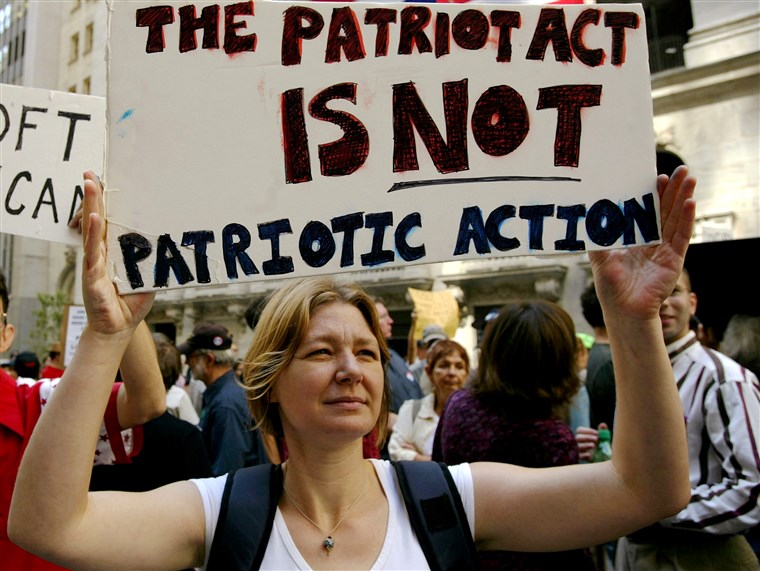As we’re arguably amidst the most digitally intrusive era known to man, there are few “national security” or “anti-terrorism” federal acts that seem to surprise me anymore. After reading about the Patriot Act in Chapter 6 though––I was a little shocked.
“Source Protection in the Age of Surveillance” from Journalism After Snowden by Emily Bell and Taylor Owen, went into more detail of just how abusive the 2001 act has allowed government surveillance to be.
[The USA Patriot Act] “empowered the FBI to collect e-mail and other electronic communications at a lower threshold of suspicion than would be required under Fourth Amendment jurisprudence.”
Basically, following 9/11, we enacted the Patriot Act to prevent future terror attacks by allowing more in-depth surveillance than usual for suspicious individuals (at least that’s what we’re told it was created for). This surveillance includes, but isn’t limited to, access to phone records, e-mails, credit history, banking history, and more––all without having to get permission from a judge for investigation.
All intelligence officials need in order to obtain these personal records are National Security Letters (NSLs). According to the ACLU, there were almost 200,000 NSLs issued between 2003 and 2006. I don’t even wanna know how many have gone out in the entire 18 years of the Patriot Act’s existence.
As a result of all that wire-tapping and invasiveness, all intelligence agencies have accomplished are criminal convictions for things that aren’t terror-related. That’s right, almost all of the evidence uncovered by NSLs has only led to drug charges, immigration violations, and money-laundering arrests. Doesn’t seem too national security-related to me.
And it isn’t just American privacy that’s at stake here either. The Patriot Act poses a real threat to journalists who already struggle enough to keep sources hidden. To avoid government powers from snuffing out journalists’ whistleblowers and sensitive-information leakers, reporters have had to learn cybersecurity practices like e-mail encryption and relying solely on in-person interviews.
It’s become some such a widely-known issue that Bell and Taylor even used a coined phrase within the reading, calling the risky business that reporting has become “national security journalism.”
All of this only serves to make the press’ job harder. And during a time where 24-hour news outlets are publishing more content than ever before, worrying whether or not their e-mails are being read is the last thing we need our journalists to be concerned about.
I can justify a federal decree as a temporary response to such a national crisis like 9/11––but after 18 years, I don’t think we can say we’re under the same level of threat anymore. Thus, I don’t think we can justify of a whole lot of Americans’ private lives being poked and prodded just so that government agencies “can better ‘connect the dots.'”

You did a great job of summing up the readings and class discussions. At this point it almost sounds ike the government used the atrocity of 9/11 as a sick excuse to justify the surveillance we are all subjected to…
LikeLike